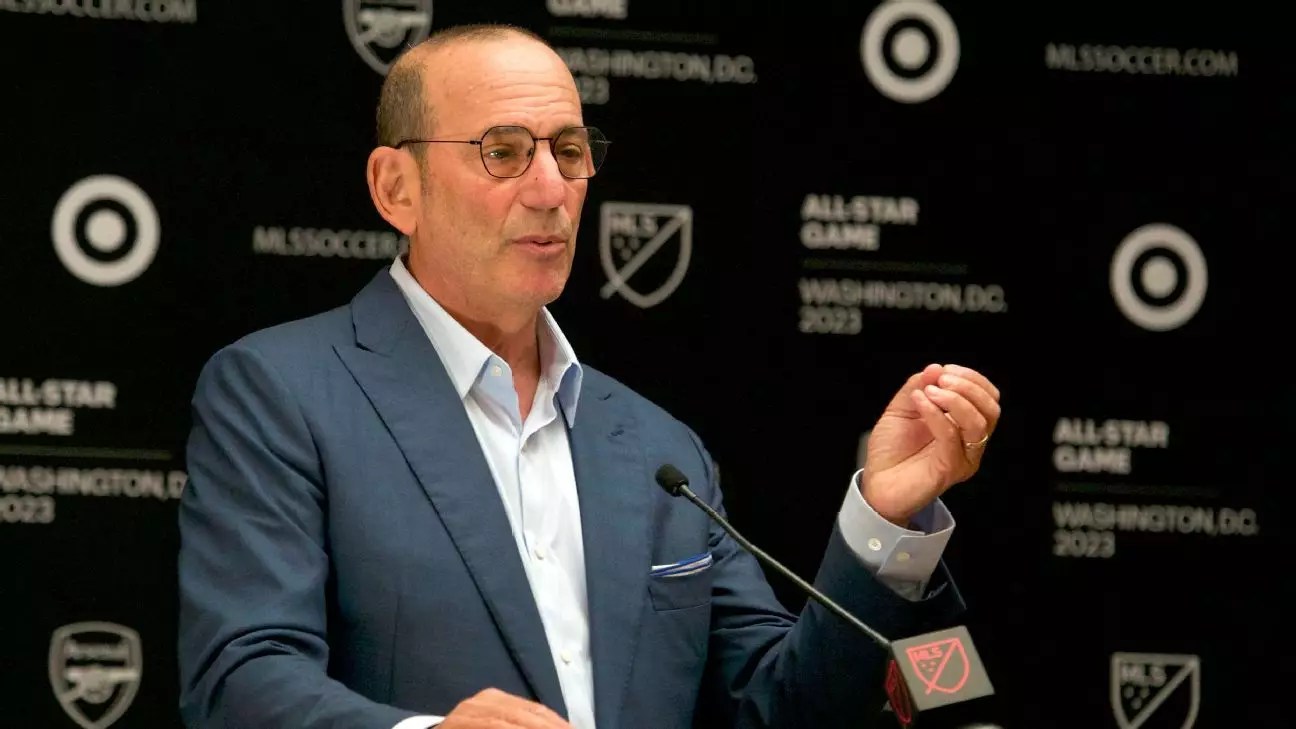As football continues to evolve into a more commercially driven spectacle, the increasing congestion of the global calendar raises critical questions about player welfare and the sustainability of the sport. Recent discussions surrounding an antitrust lawsuit filed with the European Commission have brought this issue into sharper focus. Major League Soccer (MLS) president Don Garber addressed the ongoing debate, expressing that the lawsuit might trigger much-needed changes in how football is organized on a global scale. This sentiment echoes a growing concern across various footballing bodies, from leagues to players’ unions, all advocating for a recalibration of the game’s extensive calendar.
Garber’s remarks came in the wake of LaLiga president Javier Tebas’ call to abandon FIFA’s 2025 Club World Cup, which is embroiled in uncertainty due to the absence of sponsorship and broadcasting deals. These statements underscore the fractures within the football community regarding the rapid expansion of tournaments, leading many to worry about oversaturation. Petrified by a calendar that doesn’t seem to account for player fatigue, Garber cautiously emphasized the importance of collaboration among governing bodies, suggesting that perhaps disruption could foster meaningful dialogue that leads to informed decisions benefiting all stakeholders.
The burgeoning number of international tournaments, especially with FIFA’s ambitious plans for the Club World Cup and an expanded Champions League, intensifies the already daunting fixture list for professional players. With criticism mounting from top talents about their grueling schedules, a shared impatience is emerging among players, some of whom have threatened to take strike action. This situation suggests a pivotal moment in football, as athletes grapple with the reality of competing amidst rampant commercialism that often overlooks their physical and mental wellbeing.
Additionally, discussing the clash of significant competitions, Garber pointed out that the upcoming Club World Cup will coincide with other prominent tournaments like Concacaf’s Gold Cup. Such overlaps not only complicate logistics but also place additional strain on players who are expected to perform at peak levels in successive high-stakes matches. The current trajectory raises a vital question: is the game’s relentless growth jeopardizing the quality of play and, ultimately, the health of its stars?
Former footballer Gerard Piqué echoed these sentiments at a recent summit in London, highlighting the pressing need for collective action among football organizations to address the surfeit of games. Piqué’s suggestion to reduce league sizes, proposing a shift from 20 teams to 16, is indicative of the kind of structural reform that may be essential in easing the fixture-induced pressure on players. A leaner league structure could provide a more manageable schedule, allowing players ample time for recovery—a necessity unimaginable in the current landscape dominated by relentless matches.
In light of these pressing issues, it becomes increasingly evident that the stakeholders within football, including leagues, players’ unions, and governing bodies like FIFA, must engage in substantive conversations about the future of the sport. Garber’s insights into the significance of being part of the decision-making process regarding tournaments like the Club World Cup could serve as a catalyst for transformative change in football’s governance.
The conversation swirling around football’s calendar is multifaceted, involving a delicate balance between the commercial imperatives driving expansion and the well-being of the players at the heart of the sport. Though the challenges appear formidable, the mounting urgency for reform could open the door to collaborative strategies aimed at streamlining the football calendar. If stakeholders—faced with tangible unrest—act now, they have the potential to redefine a schedule that not only respects the historical significance of each competition but also prioritizes player health and career longevity.
The dialogue must continue, and the collective insights from figures like Garber and Piqué offer a blueprint. Football can no longer afford to operate in silos of competition; instead, a harmonized, player-centric approach to scheduling is crucial for the sport to thrive in the coming years. Without this commitment to rethink and reform, the beautiful game risks losing the very players who define its essence.


Leave a Reply